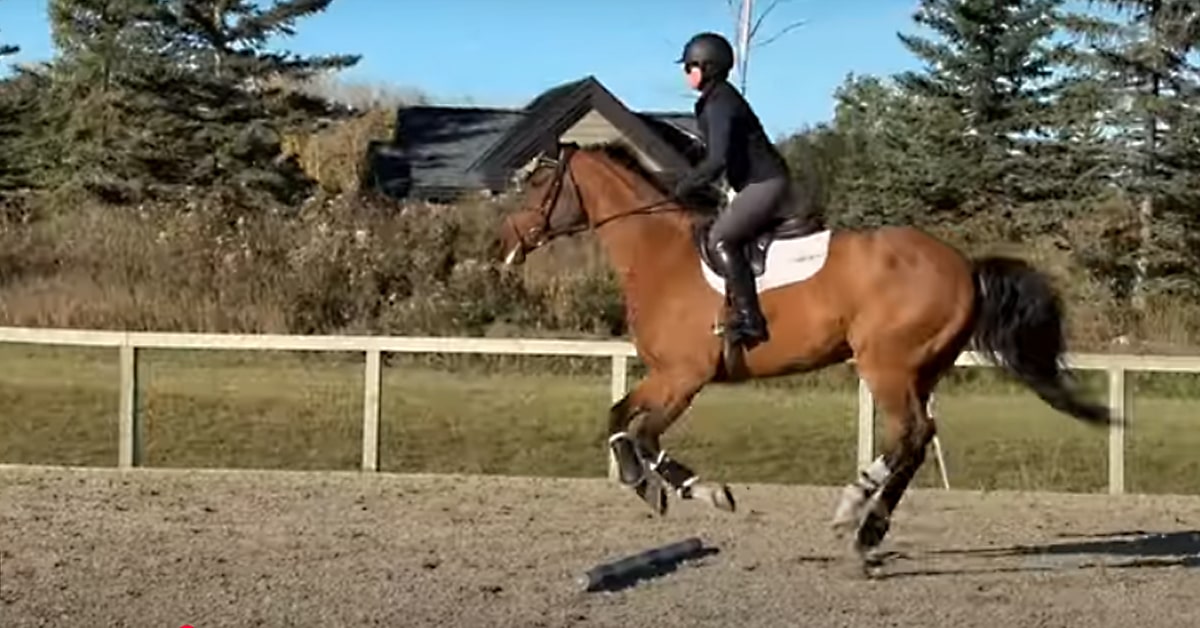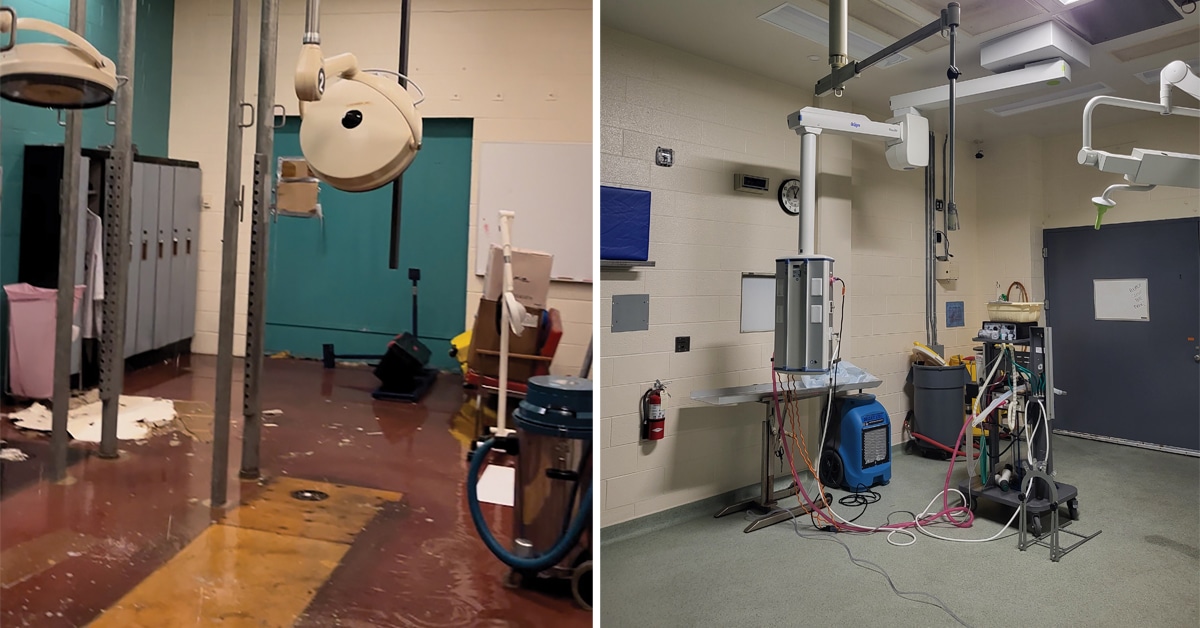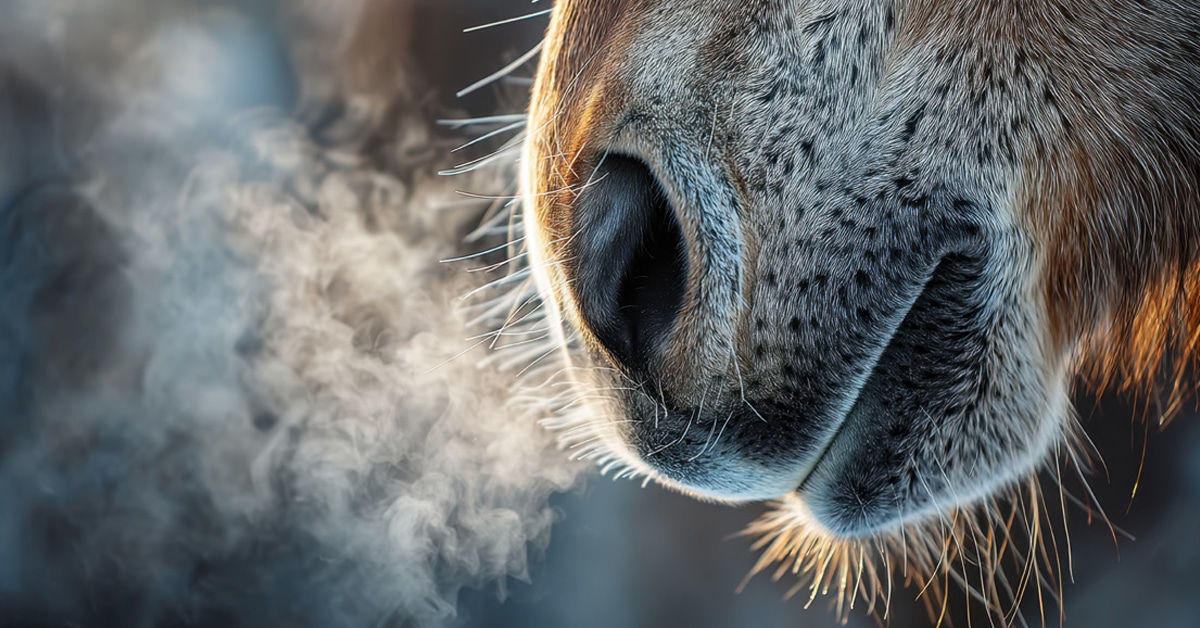Originally from Markham, Ontario, Bruce Watt, DVM, graduated from the Ontario Veterinary College in 1989. He has worked in Ontario, Alberta, BC and the Northwest Territories, did a surgical residency in at the University of Wisconsin, and was on the surgical staff at the University of Florida and Murdoch University in Perth, AUS. Dr. Watt is a board-certified surgeon with a special interest in dentistry, lameness and preventative medicine. His practice is located northeast of Toronto at Uxbridge Equine Veterinary Services.
What is the most common injury you see in horses ridden by amateurs?
I have many clients across many disciplines so it’s impossible to pinpoint a single injury, but the most common lameness issues I see are simple foot abscesses.
What is your best advise to the amateur horse owner to help a horse stay sound and healthy?
Treat them like yourself. Don’t do things to the extreme that you are not physically able to do yourself. If you are a couch potato, you are not going to run a marathon without proper training. As an amateur, you might get personal professional assistance to be a better athlete, which is what is also best for your horse.
What is the newest science helping horses remain active longer?
It’s not brand new, but there are more geriatric horses around and we can do more to help them. For example, we better understand Equine Cushing’s Disease so we can treat it a lot more accurately, which has improved the health of the retirees.
We are also better at managing dental and nutritional challenges which helps keep the geriatric horses in better shape as they age. This is important because most amateurs consider their horses a part of their family and want to keep them healthy and happy in their retirement.
What was your trickiest case that had a happy ending?
We had a horse that had a spiraling, non-displaced, incomplete fracture of his radius in February of 2020. There were steel roof trusses in the construction of his barn that enabled us to attach a standing Anderson sling.
We suspended the horse in the sling to prevent him from being able to lie down because the act of standing back up could cause the already fractured radius to completely break beyond repair. We tightened up the bindings so that the sling itself was hanging about one inch below him so he could lean into the sling to rest if he desired, but he still had to stand on his own. He stayed like that for three months and healed nicely and has since gone on to retire and live out the rest of his years in a big grassy field with friends. Transportation to a surgical facility was contraindicated in this case.
In the next five years, what do you see as the biggest challenge facing the horse industry?
A lack of vets in general across Canada, and particularly a shortage of equine specific veterinarians. There are a lot of reasons for this:
1) A larger portion of the population is growing up in urban settings instead of rural. They aren’t growing up on farms and they don’t know about horses or other large animals. As a result, when they go to vet school they have never seen a horse, so they stay away and focus on the dogs, cats and other small animals. As a smart ol’ friend of mine in Alberta once told me: “You can’t get comfortable and confident with horses out of a textbook.” People simply gravitate to small animal veterinary work because that’s what they’re comfortable and familiar with.
2) Even vets who are familiar with large animals choose to enter small animal practices. I can name half a dozen vets that started in agriculture work and were large animal oriented, but by the time they graduated they did small animals. They get married, have kids; the hours are more predictable, there are fewer hazards, etc.
3) There are not enough vet schools or spots in those schools, in Canada in particular but also in many other countries, so consequently not enough vets are graduating. Demographically the baby boomers ‒ and there are a lot of them ‒ are retiring from practice. Not enough coming into the profession and lots leaving the profession creates a net loss of veterinarians.
***
Insurance for Horses and Their People
There’s a special bond between horse and owner – we know, because we’re horse people. At CapriCMW, our equine insurance specialists are horse owners, riders and enthusiasts and we’re here to protect you and your horse.
The Latest









